|
A striking social critique masquerading as a "black comedy", Corey Finley's Thoroughbred is centered around two upper-class teenage girls living in a lavish suburban Connecticticut, individuals who find their once defunct friendship rekindled due to a shared interest in alleviating themselves from certain problems in their life - mainly, Lily's controlling step-dad. Thoroughbreds' excels both thematically and narratively due in large part to its characterizations, presenting the audience with two characters in a way that intrigues but never completely reveals their intentions. Amanda is the oddball, the sociopath whose ambivalent nature towards everyone and everything leaves her detached. She is a character that is brutally honest about her feelings, or lack there of, being completely void of the facade of politeness expected in general social exchanges. Lily is more what one would expect from an upper-class teenage characterization, an individual whose buttoned-up, proper existence has begun to wear thin. Struggling to deal with a stepdad who refuses support her both financially and emotionally, Lily has developed severe disdain for this man. It's through these two characterizations where Thoroughbreds' social critique manifests itself, as the film slowly subverts one's expectations, revealing a stark commentary on the current state of American society, one in which selfish intentions drive success more than empathy. While it's Amanda who intimidates and concerns the audience with her lack of general emotion early on, the film slowly reveals that Lily is the character who is truly dangerous, an individual who is completely driven by self-interest. Thoroughbreds establishes the step-dad as a character who is unredeemable, presenting him in as a malevolent force, one who only brings oppression and pain into Lily's life, slowly and methodically destroying the bond shared between Lily and her mother. Presenting him as simply, the rich, evil prick early on, Throughbreds completely manipulates the audience, who unbeknownst to them is only seeing this man solely through the perspective of the self-absorbed Lily. We eventually are broken free of this perspective to reveal LIly as a spoiled, selfish character, one whose spite for her step-dad is directly related to his inability to coddle her and financially support her to a fault. His desire for her to forge her own path, void of his influence both financially and socially, is the real reason for their constant confliction, as Lily expects him to support every decision she makes, no matter what, something which it seems her mother was willing to-do before remarrying. While Amanda may speak in a way which frightens people, due to her general ambivalence towards the existential nature of life; it's Lily who is the real predator, the wolf in sheep's clothing, the individual who can cause real harm; as she is the individual who is driven, first-and-foremost by her own self-interests alone, an individual who wields both her financial and social capital for personal gain. Through this narrative bait & switch, Lily transforms into a sinister force, becoming a parable, or better yet, the manifestation of late capitalism and the current problems centered around the oligarchical system in America, one in which financial welfare is expected not earned by those of privileged status. The conclusion of the film perfectly encapsulates the allegorical nature of this tale, one which finds us reintroduced to a version of Lily whom seems to be successful and flourishing personally, with her privileged, self-involved nature being the perfect catalyst for success in the dog-eat-dog nature of contemporary, American life. A film sold very much as a black comedy from a marketing perspective, Thoroughbreds is feels more like a pitch black social commentary, one in which its comedic intentions never disrupt or cheapen the more introspective nature of its story, featuring comedic moments which never feel forced for the mere sake of cutting through the philosophical nature of its commentary on the darker aspects of contemporary human life.
0 Comments
While much of the Romanian New Wave is draped heavily in complex socio-political ambitions, Paul Negoescu's A Month In Thailand offers up a pleasant counterbalance, one which asserts universal truths through its minimalist design A simple slice-of-life story, Negoescu's A Month In Thailand details the romantic follies of Radu, a 20-something male who is stuck in the inertia between adolescence and full-blown adulthood, a character who struggles understanding what he wants in a relationship due to his failures in understanding himself. Much of the film is centered around Radu's sense of doubt and longing, as he finds himself unsure about his current relationship with Adina, a young woman whom seems profoundly in-love with him, a buoy to their companionship which feels unsustainable long term. Radu's reservations are amplified after a chance encounter leads him face-to-face with his ex-girlfriend, Nadia, which only strokes the fires of uncertainty in Radu, who begins to question everything about who he is and what he wants out of a companion. A whollyfully organic observational study, A Month in Thailand is nonjudgmental and holistic in approach. It's a film told completely from the perspective of Radu as he grapples with complex emotions related to temptation, longing, self-doubt, and comfort, all viewed through the context of love and companionship. We as the viewer are given no background into Radu's typical demeanor when it comes to relationships, we have no clue if his indecisiveness and pining for his ex are an anomaly or part of a trend; It doesn't matter because the film's lens lacks judgement, intent instead on delivering an observational deconstructing this character in a way that reveals universal truths related to the confliction between love & self-interest, with Radu himself perhaps having too much the infalliable idolization of what he wants out of a relationship, something which is frankly unattainable. A Month in Thailand's minimal formalism only amplify the universal nature of its story; one which finds a character desperately attempting to find love. Through his stumbles and various follies we see a character who is trying to desperately understand himself, one whose indecisiveness in his relationships stems from his own lack of understanding of himself, a universal truth which often leads to an imbalance in most relationships. A Month In Thailand is a film which doesn't pretend to have any answers to the timeless game of courtship, companionship, and ultimately love; All it offers is a window into the struggles of one man in Radu, using this character to evoke some profound assertions related to the importance of understanding oneself as it pertains to finding love and companionship.
Bursting with creativity and ingenuity in every aspect of its visual design, Masaaki Yuasa & Koji Morimoto's Mind Game is a psychedelic, coming-of-age experience which lives up to its title. A dense, sensory experience, Mind Game follows Nishi, a loveable loser, who after a deadly encounter with two yakuza finds himself transported to a metaphysical world somewhere between heaven and hell, one which sends him and his friends down a path of self-discovery. Featuring one of the most innovative animation styles that blends traditional anime with western sensibilities, Mind Game provides a subversive, hallucinatory experience, one which would have certainly been a regular fixture of the midnight movie scene if it had been released a few days prior. Thematic assertions related to self-pity and meritocracy, fixtures of the coming-of-age story, are intact, yet Mind Game is a film one simply wishes to experience, being an innovative animation built largely around subversion; it's visceral, unapologetic, and kinetic from start-to-finish; a film which shouldn't be missed for its transcendental aesthetic which makes it a one-of-a-kind experience.
A stark, portrait of life under the restrictive, Islamic regime in Tehran, Iran, Ali Soozandeh's Tehran Taboo is an intersectional ensemble detailing the search for liberty, agency, and happiness in a society rooted in cultural and moral oppression through state censorship. Detailing the lives of young individuals looking to make their way in the world, Tehran Taboo is an impressionistic portrait of life without promise, as the film exhibits a world with little future for many of its young protagonists, characters who are stuck in their tracks due to oppressive nature of government policies that restrict personal liberty and freedom. A place with no future for many of these individuals, Tehran Taboo is a vivid reminder of the importance of individual liberty in any meaningful society, showing through its characters how a prosperous culture is predicated on the mobility of its citizenry, something which is not allocated in this society. Moral police, decency codes, and censorship are used by the state to restrict and control the populace, as Tehran Taboo is a startling reminder to the West of the paramount importance of individual liberty; something which should never be controlled or mandated by any central authority or power structure, such as the state. For the female characters of this story, there is no future for them as individuals in this society; they find their whole existence predicated on the wills of the men in their life, as the laws and various "decency codes" restrict female agency, making these woman effectively property to their male counterparts. A story with no happy endings, the only female character to find some semblance or power or agency in this story is the sex worker, a woman whom uses her attributes to forge a better life for her son. Her portrait is one that is a reminder of the need for feminism to be removed from its puritanical influences, as while her profession may be viewed as immoral by many, she has found some semblance of freedom in this restrictive culture, deriving power from the male gaze to better life for herself and her son. A stark, powerful portrait of contemporary Iranian Society, Tehran Taboo is startling reminder of the importance of individual liberty, and what it truly means to be free.
Armando Iannucci has forged a career out of delivering memorable political satires which manage to be uproariously funny, while quietly potent in the way they tackle the often nefarious nature of political power and bureaucracy, showcasing the way such power structures tend to be wielded by those with merciless ambitions for scoping society in the way they deem necessary. With The Death of Stalin, Iannucci has found his sacred cow, detailing the absurdities of the authoritarianism under Joseph Stalin, as his latest film chronicles the power vacuum left behind after Stalin's sudden death from a brain hemorrhage, when the high ranking administers of the communist party conspired amongst themselves in an attempt wield the centralized power of the state. Dealing with a regime which was responsible for the slaughter of millions of its own people, Iannucci's film is essentially "sometimes you have to laugh so you don't cry" in cinematic form, a witty, sharp comedy which manages to find the humor in abhorrent political violence, demonstrating the absurdities of having any type of central authority with such power over everyone else. Centralized power and totalitarian regimes attract those individuals who seek such control and power, and the way Iannucci's film manages to exhibit this absurdity of politics with witty dialogue and biting satire makes the whole experience highly enjoyable yet potent, showcasing the corrosive nature of authority during the reorganization of power under such a regime. Through the various individuals of the cabinet, who connive and conspire to stake out their new role, The Death of Stalin exposes how objective truth is often the enemy of authoritarian regimes, as the state itself must be absolute and infallible, having a rhetoric typically placated to theology, intent on leading the masses for the sake of the "motherland" or "the common good". By chronicling the aftermath of Stalin's death, Ianncci's film exhibits how often the winner of such political games are the ones most cutthroat in his ambitions cc: Stalin vs. Trotsky, as men who don't share this absolutist tendency- men who value empathy, individualism, and liberty- are often crushed by these nefarious individuals intoxicated by the promise of wielding such authority, no matter the moral implications. The Death of Stalin is a uproariously entertaining deconstruction of authority and central power, managing to detail a dark, violent regime through biting satire with profound results.
A tonally shapeshifting piece of cinema that blends satirical elements with deep-cutting indictments of consumerism and neo-colonialism, Djibril Diop Mambety's Hyenas questions this form of societal progress, detailing how the politics of debt and austerity imposed on the Senegalese people at a local level restricts personal freedom and imposes control over the populace through such measures. The narrative itself is a brash but clever allegory, one which a local grocery finds himself slowly ostracized and oppressed due to the return of an ex-lover, a former resident of the once-prosperous Senegalese village who promises to bestow great wealth and prosperity to the financially struggling village, but only if they punish this local shopkeeper, and her ex-lover, for his past crimes against her. A lovers quarrel is effectively politicized in the course of this narrative, with Djibril Diop Mambety's film revealing how power and control can be wielded through extreme wealth. While the villagers don't agree to punish the shopkeeper directly, adamant that "justice is not for sale", it's how this wealthy woman achieves her control and "justice" indirectly, using austerity-type measures through the creation of consumerism, slowly and meticulously providing the town with various consumer products, sculpting and shaping the culture in a way in which they will eventually have to comply with her dreams of vengeance; with the people being seduced by this new way of life. The transformation of this Senegal village from poor but empathetic to one in which one which consumer goods and material wealth is championed above nearly all else is disturbing and diabolical in the context of this story, as the story itself and the transformation is viewed through the eyes of the shopkeeper, a man who slowly begins to realize his life itself may be in danger, due to the populace being seduced by the vapid promises of consumerism and material possession. While Djibril Diop Mambety's Hyenas may wrongfully be a proponent of cultural and economic protectionism, there is no denying the film's clever formalism used to bestow its rightful concerns and critiques related consumerism and economic colonialism, as the filmmaker delivers another sharp, important work that should be seen by anyone who speaks of prosperity for all.
Bo Widerberg's Adalen '31 chronicles the events surrounding the Adalen riots on May 14th, 1931; a confrontation between Striking workers and the military which erupted into violence, leading to the death of five men. Widerberg's story is intimate in scope, yet expansive in its thematic assertions, instilling a coming-of-age archetype in which innocence is shattered for a young man who for the first time begins to understand the injustice and oppression which exists in the world. The clash between the working class and employing class is viewed through the lens of the youth in Adalen '31, in which the stakes of the ongoing strike are shown but they are far from front-and-center. Adalen'31 maintains its youthful perspective throughout its running time, one in which the stakes are felt but delivered in a subtle, yet efficient way, juxtaposing the youthful spirit of unbiased judgement with that of adulthood, where bias and preconceived notions create hostility among various classes and creeds. Our main protagonist's young romance with a woman of the bourgeoisie class is a prime example of this. They may come from different classes of society but they share the same youthful curiosity and attraction towards each other, yet in the end their relationship ends in tragedy, never standing a chance in the end due to the preconceived notions and bias stemming from their elder parents, individuals who simply won't attempt to step outside of their class. Unquestionable a story about the working class, and its rights to be treated fairly and freely; Bo Widerberg's Adalen '31 is perhaps most inspiring due to how it looks towards the youth, recognizing how they're not yet stained and defeated, having not yet simply accepted that things simple are the way things are.
Duncan Jones' Mute is an abhorrent piece of filmmaking, a film in which its flaws are so vast and various, one cannot help but ponder what the pre-production process entailed. Mute feels like a first draft being a film thats premise intrigues initially, yet it quickly divulges in masturbatory world-building in which our character's journey feels inconsequential and uninteresting, lost in a film thats bloat serves little purpose, outside of giving Paul Rudd some scenery to chew. Blending cultures, creeds, theologies, and political ideologies, Mute takes place in a futuristic, globalized world; it's a rich, cyberpunk tapestry which is effectively empty, as the filmmakers do very little with it thematically. The formalism itself, as well as the underlying themes of this story are a discombobulated mess; as the film unnecessarily provides two dueling narratives that don't payoff. The main driving force of the story, centered around our mute protagonist intent on finding the love of his life who mysteriously disappeared, is bland and tepidly paced, while the other side-story, involving Paul Rudd's ex-military character starts off far more compelling before divulging into a caricature of sinister intentions. The treatment of Rudd's character towards the end of the film makes little sense, as the filmmakers effectively destroy everything they built with this complex, anti-hero type character throughout the film. He is a man whose off-kilter, yet he does what he does for the sake of his daughter; The finale betrays this characterization entirely, making all the complexities of his characterization superfluous, with this character serving no other purpose but one-dimensional protagonist by the time the credits roll. In what would amount to a good academic example of the many pitfalls a filmmaker can fall into when aiming for high-concept filmmaking with no checks & balances (I assume), Mute is interesting, but otherwise this is just the latest Netflix film that is dead on arrival.
A dense, sensual evocation on politics which is as immersive as it's introspective, Glauber Rocha's Entranced Earth details humanities never-ending struggles in the political arena, one in which the corrosive nature of authority and by-proxy power, inevitably stands in the way of personal liberty and freedom for the masses. The conduit for this film's thematic assertions is a poet and political activist, a character driven to to make change through the political arena. He is a man who understands that the state apparatus is a way to elicit change for the better, yet as the film progresses he witnesses the slowly degrading effect political privileges and power have on nearly everyone who wields it, recognizing how the authority bestowed by the state directly conflicts with his empathetic soul. Entranced Earth is a film which wisely and emphatically recognizes that their are no easy solutions, a wholly refreshing concept for a political film. Some may even think the film itself feels confused in its assertions, but this is exactly the point, as Entranced Earth recognizes the intrinsic nature of authority and autocratic intentions, even when the intentions of the individual are pure, in principle. Our main protagonist himself is a character who is effectively tortured from within, a man who seeks change but constantly witnesses the grotesque double-standards which exist morally from those who wield state power and those who don't, as he himself fights his own urge to be autocratic. Entranced Earth rightfully recognizes that while intentions matter, the state apparatus, or any such power structure, enables and empowers those driven by greed and self-interest due to the privileges it grants, being a film which effectively showcases the case for anarchy across its running time. Words like extremist or anarchist are words which empower the status quo; with the former itself having no true meaning, yet it is a word that is given a perjorative context through those whom wish to suppress any widespread change in society. Entranced Earth is raw and visceral, featuring a visual aesthetic that is abrasive by design, adhering to this main character's struggle, evoking the internal struggle of this man who quakes with unease about the injustice and oppression which exists in his world. A bold, important piece of political filmmaking, Entranced Earth is a film which should be seen by everyone, as it showcases a film grappling with complex issues about humanity, and civilization as a whole.
With his latest feature, Thirst Street, Nathan Silver yet again proves he is one of the best American contemporary filmmaker around, sculpting a strange yet affecting portrait of longing, desire, and desperation in which the potential for danger and violence is beautifully juxtaposed with that of a sympathetic portrait of one woman desperate to find connection again after the suicide of her husband. Silver's films are considered outre, and rightfully so, yet they detail complex emotions with searing authenticity through the filmmaker's unique formalism, doing so in a way that always places the emotional core front and center. The main protagonist of this story, Gina, played masterfully by Lindsay Burdge, is a character who walks a fine line between sympathetic and deranged, an individual who becomes increasingly obsessed with a Parisian bartender, after she misinterprets a one-night stand as something more. She is an individual who many or not be slowly unraveling, walking right along that edge between sympathetic and dangerous, and Lindsay Burdge deserves many accolades for a performance that manages to capture both. A Neon-soaked aesthetic reminiscent of Italian giallo suggests a macabre conclusion, but this is just a subversion by the filmmaking, whom suggests an underlying sense of menace that never comes in the scope of the narrative. Silver's aesthetic teases danger, but it's just a device to express the murky nature of complex emotions, as Thirst Street showcases the fine-line which can exist between emotional fragility, desperation, and obsessions. Perhaps Nate Silver's most accessible film to-date, Thirst Street feels like a slow-motion trainwreck in cinematic form, a film which never divulges into thriller territory even though it suggests it will, subverting expectations while painting a vivid tapestry of fragility, and the complex relationships between to desire, longing, and desperation.
|
AuthorLove of all things cinema brought me here. Archives
June 2023
|
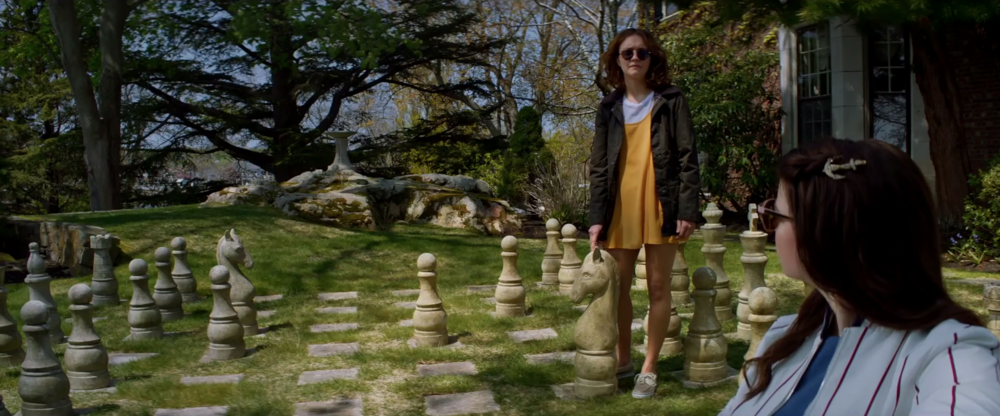

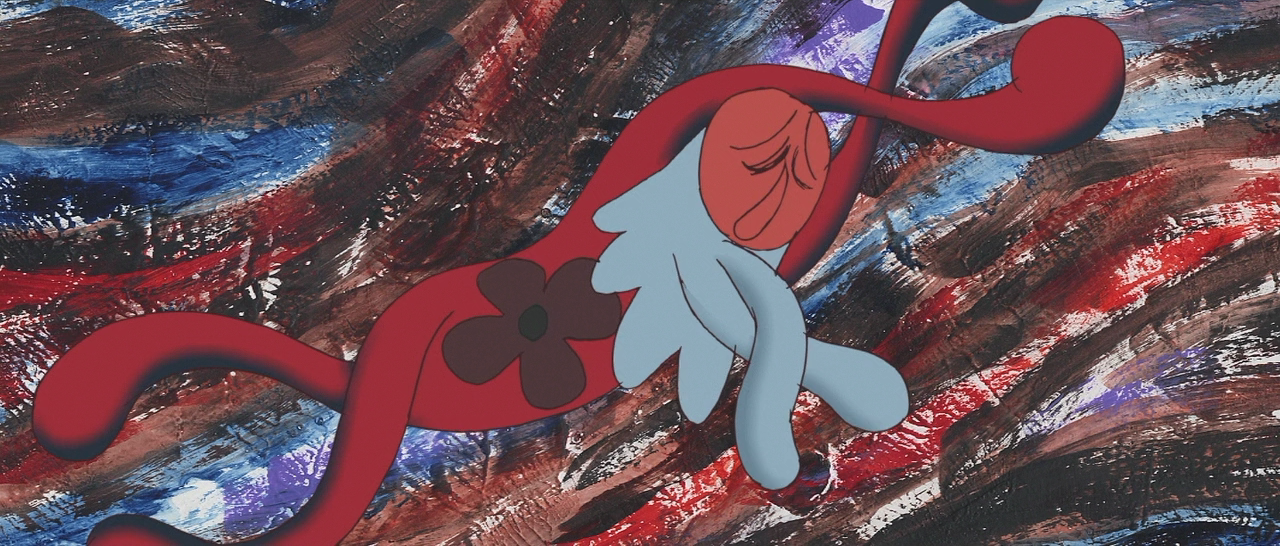

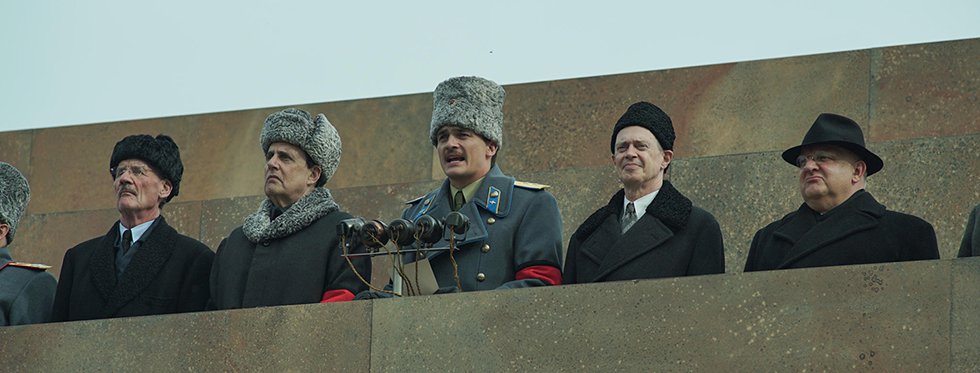
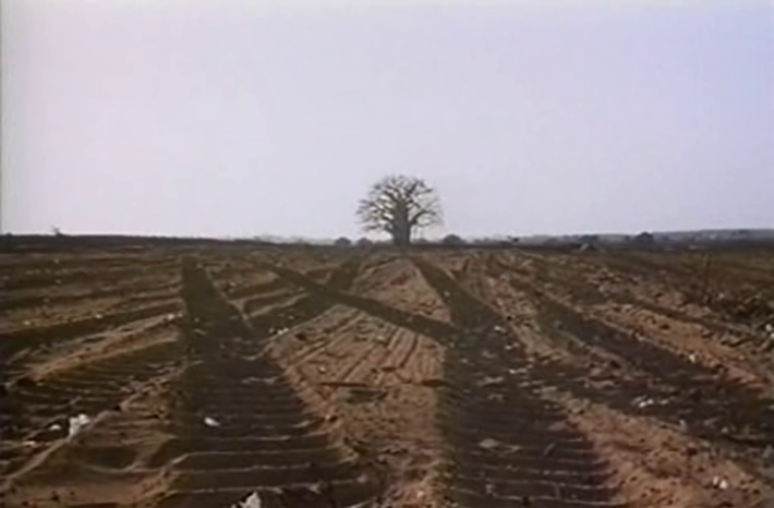
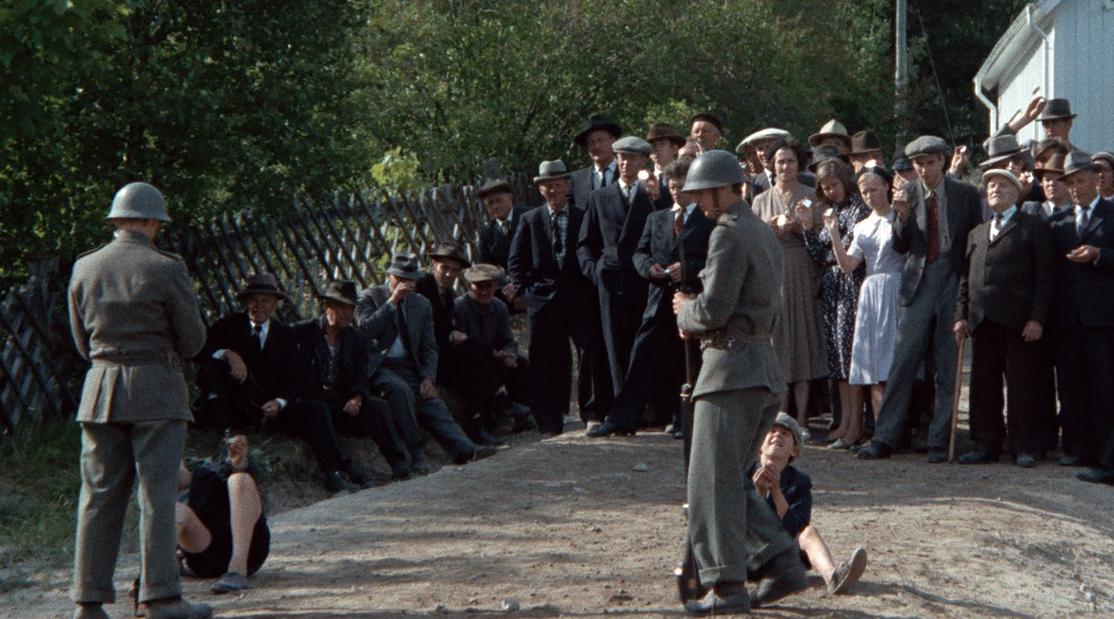

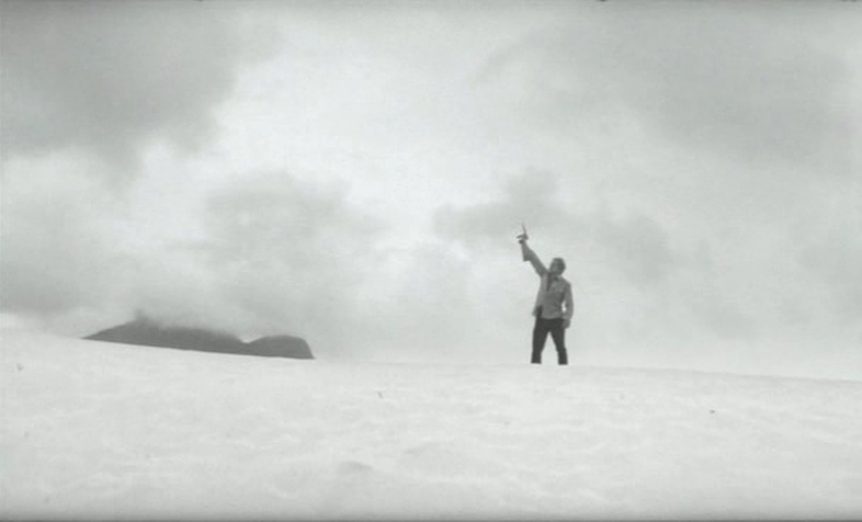
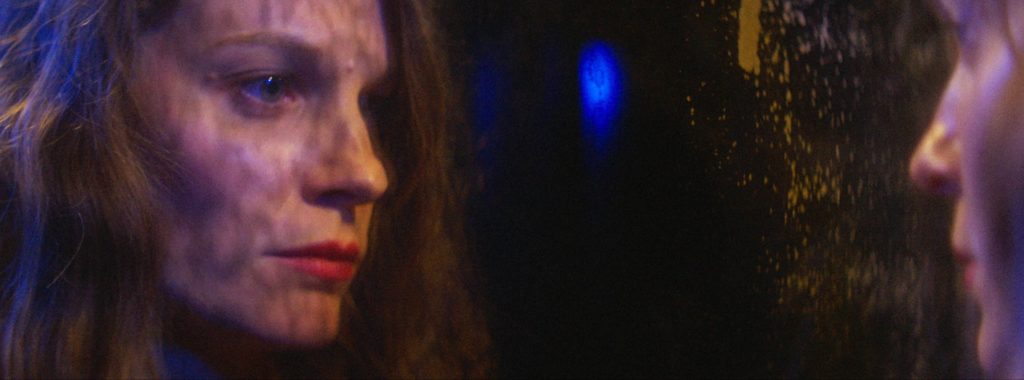
 RSS Feed
RSS Feed
